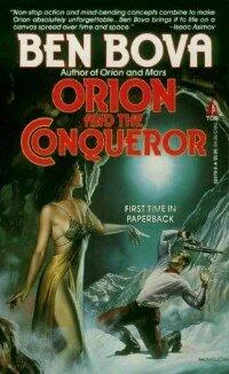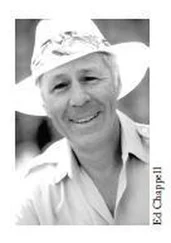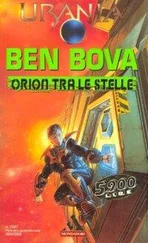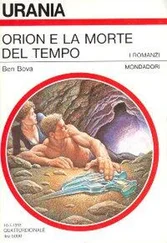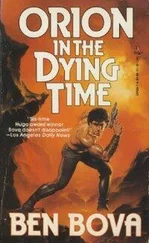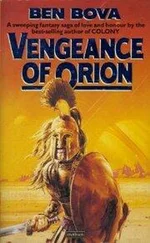I thanked him and led Thunderbolt off to where the slave boys were rubbing down the horses after their exercise.
The siege of Perinthos ended a few weeks later. The city still defied Philip from behind its wall, and still received supplies from the sea. Philip gave the order to break camp and head back to Pella, his capital.
“I don’t understand it,” I said to Pausanias, the highborn Macedonian who headed the king’s guard. “Why are we leaving without either taking the city or being driven away?”
Riding beside me, Pausanias gave a bitter little chuckle. The captain of the guard may have been born to the nobility, but there was something dark and festering in him. The men made jokes about him behind his back that I did not understand, jokes that had to do with stableboys and too much wine.
“There are more ways to win a city than by storming it or starving it out,” he told me as we rode. “The king has a thousand tricks, one more devious than the other.”
“Why did he want Perinthos in the first place?”
“It’s allied to Athens.”
“And why make war on Athens?”
Pausanias had a handsome face, with a well-kept light brown beard. But that grim moodiness showed through the humorless smile he was giving me.
“Why not ask the king? I’m only one of his distant nephews.” And he pulled his horse away from mine, tired of my endless questions.
A short time later Alexandros came dashing up on Ox-Head, his powerful midnight-black charger, almost breathless with excitement.
“We’re turning back!” he shouted to the group of us. “The king wants us to go back!”
“Back to Perinthos?”
“No, but to the coast. Quickly. Follow me!”
We turned and followed. Up ahead I could see Philip with others of his guard and a clutch of officers urging their horses into a swift trot. Something was up.
I rode with Pausanias and the rest of the royal guard, following Philip and his generals. Alexandros led the remainder of the cavalry behind us. The sun was high and hot by the time we slowed to a walk and nosed our mounts through a thin screen of trees and shrubbery atop the low ridge that lined the seashore. Alexandros rode up to his father’s side, leaving the main body of the cavalry down at the bottom of the ridge.
Down on the beach below us a great flotilla of boats had been pulled up on the sand. There must have been two hundred and more of them, fat round-bottomed cargo carriers for the most part, although I saw more than a dozen sleek oar-driven war galleys among them.
Pausanias smiled wickedly as we sat astride our horses, stroking their necks to keep them calm and silent.
“You see?” he said to me, in a low voice, almost a whisper. “There is the Athenian grain fleet, ripe for the taking.”
Men were lolling around the ships, dozing on their decks in the midday sun. A few of the grain carriers were keeled over on their sides while teams of slaves daubed hot pitch on their hulls.
“The gods know who he bribed to get them to stop here,” Pausanias muttered. “The One-Eyed Fox has more tricks than Hermes.”
I knew he meant the king, Philip. From the little I had gleaned of the situation, it appeared that this fleet was carrying the grain harvest from the rich farm lands of the Black Sea, beyond Byzantion and the Bosporus, the annual harvest that fed the land-poor city of Athens.
“The Athenians don’t work the land,” Nikkos had told me one evening. “They don’t work at anything any more. They live on a public dole and bring the grain in through the Bosporus and the Hellespont. That’s why Old One-Eye wants the seaport cities like Perinthos and Byzantion. The Athenians have the finest navy in the world, but it won’t do them any good without ports to tie up in each night, will it?”
Obviously the grain fleet had been afraid to put in at Perinthos, with Philip’s army besieging the city. So they had beached for the night here, nearly a day’s ride below Perinthos, thinking themselves safe. Philip must have had spies along the coast—perhaps even among the sailors of the fleet, if Pausanias’ wry comment had any truth in it.
Philip backed us away from the wooded ridge line, down to where the rest of the cavalry waited, hidden from the beach. We were ordered to feed and water the horses and to take a cold midday meal of preserved strips of goat’s meat and water. The meat chewed like leather.
Presently I saw a long line of soldiers winding along the trail that led toward us. Peltasts, not the heavily armored hoplites, trotting at an easy gait. This was going to be a fast strike, and the lighter-armed peltasts would be more useful than the clanking heavy infantry.
With Pausanias’ permission I crawled up to the ridge line to join the handful of scouts already lying on their bellies, keeping watch on the enemy. The Athenians had not even posted any guards! I saw a few armed men standing near the war galleys, but otherwise their camp was as undefended as air.
The sun had swung behind us and was heading for the rugged bare hills at our backs when Philip gave the order to mount up. I was dressed and armored exactly like all the others of the king’s personal guard: a bronze cuirass molded to resemble a man’s well-muscled torso, leather windings to protect my lower legs, and a bronze Corinthian-type helmet with cheek flaps. I bore a lance in my right hand and a sword in its scabbard against my hip. I also had my ancient dagger strapped to my thigh beneath the skirt of my chiton.
We did not charge. The word came from the king that we were to ride slowly down from the ridge toward the beach, ready to break into a gallop if the trumpets so ordered. It was not necessary. The sailors froze where they stood at the sight of more than a thousand of Philip’s cavalry ambling out of the woods toward their beached boats. As I rode toward them, my lance upright in my hand, I saw the shock and terror on their faces. The peltasts came in at either end of the curving beach, javelins and bows ready. The sailors were trapped against the sea.
There was no fight in them. They surrendered meekly and the entire year’s grain harvest became Philip’s prize. There would be hunger in Athens this winter. Or so I thought.
Philip was in high spirits as we rode toward Pella, his capital. He had failed to capture Perinthos, and had done little more to Byzantion than throw a scare into its citizens. But he had the grain harvest. An army of slaves had loaded it all onto creaking ox carts and then we had burned the Athenian ships, every last one of them. The black smoke rose like an offering to the gods and stained the crystal blue sky for days. The Athenian sailors he sent home on foot, despite the urgings of Alexandros and several others to enslave them.
None of us was disappointed that we had won the grain without a fight. Except for Alexandros.
“The young hothead thinks he’s a new Achilles,” grumbled Pausanias as we rode toward the capital. “He wants glory and the only way he can get it is by bloodshed.”
“How young is he?” I asked.
“Eighteen.”
I made myself chuckle. “It’s understandable, isn’t it? Didn’t you want to be a hero when you were eighteen?”
Pausanias did not reply to my question. Instead, he told me, “A few years ago, while we were campaigning in northern Thrace, Philip left Alexandros in Pella, to govern while he was in the field. Gave him the ring and the seal and everything. That’s when people started calling him the Little King. He couldn’t have been more than sixteen.”
“He was left in charge at sixteen?” I marvelled.
“Antipatros was left with him, of course, to steer him by the elbow, but Alexandros took himself very seriously, even then. One of the hill tribes, the Maeti, stirred up some trouble. They’re always raiding one another, those cattle herders, or trying to get away from paying the king’s taxes.”
Читать дальше
